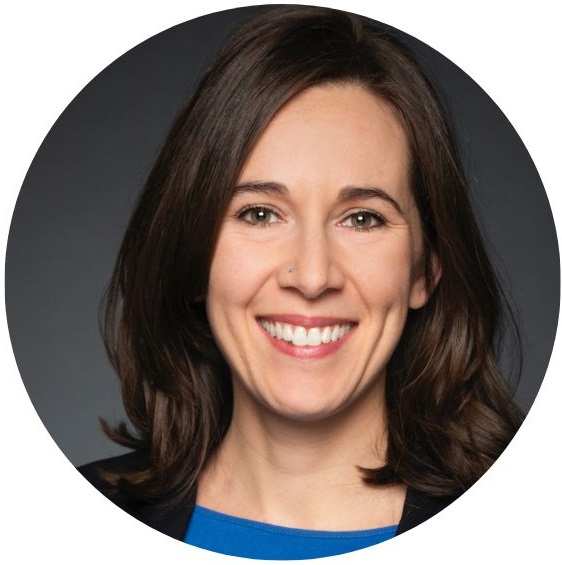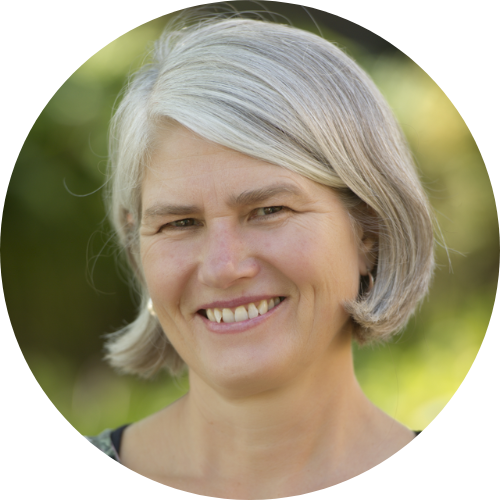We hosted an engaging program of presentations, inviting leading experts in their fields to present their research to our community. It was a unique opportunity to gain invaluable insights into cutting-edge, top-level work, and we are grateful to all our presenters for sharing their time and expertise.
Upcoming seminars
The Power of Human Milk (Oligosaccharides)

Dr. Lars Bode, Professor in Residence at UC San Diego
Every human in the world is affected by the study of human milk and lactation. In the first few months of life, we either receive human milk or infant formula, which itself is based on the composition of human milk. Breastfeeding and human milk improve infant mortality and morbidity by reducing the short- and long-term risks of communicable and non-communicable diseases but are also associated with numerous benefits for the breastfeeding parent. Yet, despite the many documented benefits for infant and maternal health, human milk and lactation are highly understudied. Dr. Bode’s lecture introduces the many benefits of human milk and focuses on specific human milk bioactives called Human Milk Oligosaccharides, or short HMOs. HMOs are complex carbohydrates and the third most abundant components of human milk after lactose and lipids. HMOs serve as human milk prebiotics and help shape the infant’s gut microbial communities and functions. However, HMOs are more than just “food for bugs” and act directly on the host independent of microbes. The lecture discusses (i) how maternal factors alter HMO composition in milk, (ii) how HMOs impact infant health and development, and (iii) how HMOs might serve as natural biosolutions in the prevention or treatment of diseases in people of all ages.
When: Wednesday, April 30 at 10am
Where: MSL 102
Past seminars
Are We Adapting to Climate Change?

Dr. Marshall Burke, Professor at Stanford University
We study whether the sensitivity of economic, health, and livelihood outcomes to climate extremes has declined over the last half century, consistent with adaptation. Understanding whether such adaptation is already occurring is central to anticipating future climate damages, to calibrating the level of ambition needed for emissions mitigation efforts, and to understanding additional investments in adaptation that could be required to avoid additional damages. Using comprehensive panel data across diverse geographies and outcomes, including data on mortality, agricultural productivity, crime, conflict, economic output, and damages from flooding and tropical cyclones, we find limited systematic evidence of adaptation to date. Across 21 outcomes we study, six show a statistically significant declining sensitivity to a changing climate, five show an increasing sensitivity, and the remainder show no statistically significant change. Our results do not imply that specific documented adaptation efforts are ineffective or certain locations have not adapted, but instead that the net effects of existing actions have largely not been successful in meaningfully reducing climate impacts in aggregate. To avoid ongoing and future damages from warming, our results suggest a need to identify promising adaptation strategies and understand how they can be scaled.
Health Benefits of Optimising B-Vitamin Status Across the Life Cycle and Impact of Transitioning to Healthy Diets from Sustainable Resources.

Dr. Mary Ward, Professor at Ulster University
Folate and the related B vitamins have essential roles in human health throughout life. Sub-optimal B vitamin status is increasingly common due lack of diversity in the diet and contributes to several adverse health outcomes including cardiovascular disease, poorer cognitive and bone health and anaemia. Furthermore, in the case of certain vitamins i.e. Riboflavin, subclinical deficiency (low riboflavin status without clinical signs) may be much more widespread than generally recognised, including in high-income countries and especially in women of reproductive age, but typically goes undetected due to lack of available data. Riboflavin biomarkers are rarely assessed in human studies, and thus neither deficiency nor subclinical deficiency is well documented. The adverse health consequences of low and deficient riboflavin status throughout the life cycle, include anaemia and hypertension, that contribute substantially to the global burden of disease. In the case of vitamin B12 achieving optimal B12 status can be particularly problematic for certain population groups due to inadequate intake or B12 malabsorption. This presentation will consider the metabolic and health consequences of low B-vitamin status and the related research, public health, and policy priorities. Consideration will also be given to the impact of transitioning towards a healthy diet from sustainable sources on B-vitamin status.
Perennializing Marginal Agricultural Lands – A Solution to Boost Carbon, Biodiversity, and the Bottom Line.

Dr. Christy Morrissey, Professor at University of Saskatchewan
Marginal croplands are defined as areas within fields that are consistently low yielding and unprofitable. These are often in sensitive higher biodiversity areas near wetlands or field edges but are subject to salinity, flood risk, soil erosion and can be agrochemical sinks. Given the need to address the dual crisis of biodiversity loss and climate change, there is urgent need to find solutions that provide multiple ecosystem benefits without affecting producers’ bottom line. Our team is working with farmers across the Canadian Prairies to identify, map and model where the marginal cropland exists and target these areas for experimental conversion to tame and native perennial forage mixes to study the changes in agronomic, economic and environmental costs and benefits over the transition.
Land-Use and Use Rights: Historical-Ecological Perspectives of Food Systems in the Pacific North-West.

Dr. Chelsey Armstrong, Assistant Professor at Simon Fraser University
Indigenous communities throughout the Pacific Northwest have long told researchers that plant resources were routinely managed and encouraged across the region. Despite these accounts, archaeological and ecological research documenting land-use and cultivation legacies have been lacking. To investigate ancient and historical land-use and cultivation in the Pacific Northwest, this research uses historical-ecological methods to document forest cultivation through time. This research shows that practices like orcharding and fruit tree management not only lead to increased functional and biological diversity, but challenge long held Eurocentric beliefs about cultivation and land-use in Ts’msyen, Gitxsan, Coast Salish, and Nuu-chah-nulth homelands. In the context of settler states like Canada, Indigenous cultivation and land-use is equated to use rights and therefore require careful attention and scrutiny.
Agriculture’s transition to net zero emissions––what is livestock’s role?

Dr. Ermias Kebreab, Professor and Associate Dean at the University of California, Davis
Researching on animal nutrition, mathematical modeling of biological systems and the impact of livestock on the environment, Professor Kebreab has authored over 250 peer-reviewed articles and received several prestigious awards. He is also a sought-after speaker whose recent TED Talk presentation was a “must-watch climate talk of 2022.”
Agriculture’s transition to net zero emissions––what is livestock’s role?

Dr. Emma Allen-Vercoe, Professor in Tier 1 Canada Research Chair and Department of Molecular and Cellular Biology at the University of Guelph
Launching her faculty career at the University of Calgary with a study focused on culturing ‘unculturable’ microbes, Professor Allen-Vercoe developed a model gut system that emulated human gut conditions. Later moving to the University of Guelph, and receiving several important awards, she has refined and expanded her anaerobic fermentation laboratory, and is now focusing on ‘missing microbes’ from the industrialized microbiome.
Livestock disaster preparedness: what’s law got to do with it?

Dr. Sarah Berger Richardson, Assistant Professor, Faculty of Law (Civil Law Section), University of Ottawa
Teaching food law and policy, administrative law, and civil liability at U of O, Dr. Berger Richardson is president and co-founder of the Canadian Association of Food Law and Policy plus a member of the Law Society of Ontario. Researching on the regulation of the agri-food sector (with a particular emphasis on animal agriculture and meat processing) she has also been a past research fellow at the Manna Center in Food Safety and Security and a visiting teaching fellow at the Schulich School of Law at Dalhousie University.
Charting a path to net-zero carbon agriculture

Dr. Claudia Wagner-Riddle, Professor in the School of Environmental Sciences, University of Guelph
Originally from Brazil, Professor Wagner-Riddle has degrees from the University of Sao Paulo and Guelph. She leads an internationally renowned research program that measures greenhouse gas emissions to determine the carbon footprint of food, feed and fuel produced by agriculture. Editor-in-Chief of Agricultural and Forest Meteorology, she also leads a nationwide training program on Climate-Smart Soils and is North American director of the International Nitrogen Initiative.